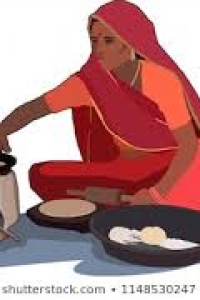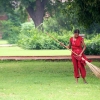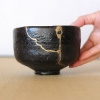
This was the joyous time of my school days, yes the summer vacations which I with my mother and elder brother, religiously used to spend at my maternal grandparents’ place. My grandparents lived in a small district of Madhya Pradesh with my uncles. I always looked forward to this trip of ours as the mud and stone paths, the mango tree grooves, the lotus ponds, the pigeons in the evening, the sound of temple bells, the azaan from the mosque, the old forts, the open blue sky and many more captivating sights of that place drew me towards it. Though it was a very accustomed and familiar sight for the locals but not for a person like me who was from busy polluted city life.
There were no telephones at that time in that place so my mother had informed my uncles about our exact date and time of the arrival. The train halted only for 2 minutes at that station and everybody used to give a very surprising look at us, that some passengers are getting off from the AC coach at that small station. My uncles were very attentive to unload the luggage in that short time. Stepping on the station was also a satisfying and refreshing experience. Unlike our crowded city stations, it was a very isolated one but highly neat and green. It always gave the impression of the British time in India as the benches, the clock, the lamp poles, and the railway staffs’ uniforms were very periodic. From that very moment, I felt like I have not come by train but through a time machine and reversed myself some ten years back. The feeling was awesome I never missed my city life during my stay there but had always missed that simple, beautiful, and less knowledgeable place every time in the city. The journey to my grandparent’s house from the station was another memorable ride in the tonga pulled by a horse. It was unique firstly because I got to sit in the tonga after a long time and secondly when the tonga used to pass the small market place, the known people of that place, most of them being relatives in some way or the other would run behind our tonga to greet us. Then they would hurriedly head to their respective homes shouting and announcing our arrival. As it were summer days, so the days were terribly hot and I was always ready to overlook the absence of coolers and Acs there because the place itself gave me so many other things to keep me occupied the whole time. One of the main attractions to me was to open the old chest in the store of my grandmothers’ room. it was like opening a treasure box to me as it stored several amazingly stitched dolls by my grandmother. They also seemed to be waiting for me every summer to play with me as there was nobody else in the house to give them the fresh air anytime. They were made of waste material in the house by my grandmother and every doll looked like a million-dollar piece in itself. Some were kings and queens, some were soldiers, some old men and women, and some dancers. I was all the time occupied by them either in their marriage ceremonies or fights or dances.
I always carried a piggy bank of mine every time I visited the place as every relative visiting us or we visiting them always gave me money no matter how big or less an amount it was, I saved them all and then counted only when we returned back home. People really welcomed us as if their daughter had arrived there, irrespective of the fact that how distant the relation is of my mother to them. There were very few days that I had food at my grandparents’ place as we were often being invited by some of the other relatives for meals. The food used to be very simple and at many places cooked on the mud chullah but it surpassed all the cuisines of our city kitchens. I remember one of these kinds of meal which was being cooked by my cousin grandmother who refused to take any help from my mother even after insisting by her, my mother was made to step out of the kitchen by saying that daughters don’t cook at their mother’s house after marriage. The kitchen was well ventilated, was made of mud, and gave very earthy feeling. We were made to sit on the asans just kept outside the kitchen. Grandmother cooked on the mud chullah, her hands were very rough, I could see the big black cracks in them and after the sight of those hands my hunger flew somewhere and I felt like running from there as I had a bit dirty, filthy and unhygienic feeling. My mother read my face immediately and without being vocal, told me through her eyes to sit quietly. But my eyes couldn’t stop staring those cracked black hands chopping vegetables, kneading the flour, and cooking everything.
The grandmother continued her chatting with my mother about everyone in the family; her voice reflected the happiness and contentment to have us at her home. She even told me some of my mother’s childhood mischiefs at her home. Then she served the meal to us in highly neat and clean utensils which I didn’t expect. The food was simple with poori, curd, dal, and brinjal which I had seen her roasting in the fire and mashing with those hands. I had made up my mind not to touch the brinjal even being my favorite vegetable. As I started eating I found the food very delicious which made my grandmother very pleased and she insisted on having the vegetable as well. I gave a glance at it; it was looking very plain with no ground spices but only green chilies, ginger and coriander. It was awfully colourless, so I made an excuse for not having it. by this, my mother got a bit angry and forced me to taste it and so I did, and to my astonishment, it was the best brinjal I ever had in my life. Even today its aroma and unforgettable taste makes my mouth water. Then I realized that in the cracks of her hand lied the magic of love, passion, and simplicity. When today I cook something for my guests I am unable to add that simplicity, love, and passion from my clean hygienic hands and best spices which that old lady did in her limited resources.
About the Author







Comments